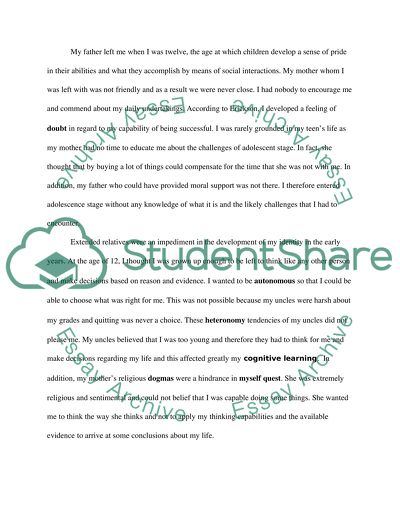Cite this document
(“Identity Formation/Develpment Essay Example | Topics and Well Written Essays - 1500 words”, n.d.)
Identity Formation/Develpment Essay Example | Topics and Well Written Essays - 1500 words. Retrieved from https://studentshare.org/psychology/1594967-identity-formationdevelpment
Identity Formation/Develpment Essay Example | Topics and Well Written Essays - 1500 words. Retrieved from https://studentshare.org/psychology/1594967-identity-formationdevelpment
(Identity Formation/Develpment Essay Example | Topics and Well Written Essays - 1500 Words)
Identity Formation/Develpment Essay Example | Topics and Well Written Essays - 1500 Words. https://studentshare.org/psychology/1594967-identity-formationdevelpment.
Identity Formation/Develpment Essay Example | Topics and Well Written Essays - 1500 Words. https://studentshare.org/psychology/1594967-identity-formationdevelpment.
“Identity Formation/Develpment Essay Example | Topics and Well Written Essays - 1500 Words”, n.d. https://studentshare.org/psychology/1594967-identity-formationdevelpment.


